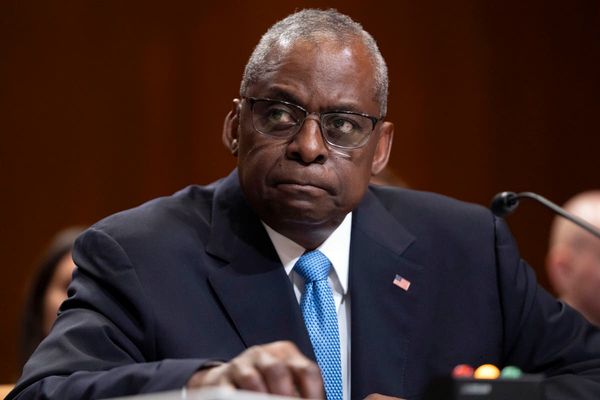
I will step out on the ledge and give credit where it is due — to COP28's President Ahmed Al Jaber, who pundits have unfairly pilloried. He has advanced the ball forward. Unquestionably, the goal now is to carry out the commitments of the global climate summit.
The Paris Agreement is working. If advanced countries fulfill their climate pledges, the trajectory for heat-trapping will fall more rapidly — still not fast enough to mitigate the worst effects of climate change. Do we throw the baby out with the bath water? No, the challenge is — and has been — to decarbonize energy markets and deliver carbon financing to the Global South.
'The deal is not perfect, but one thing is clear: the world is no longer denying our harmful addiction to fossil fuels,' said Inger Andersen, executive director of the United Nations Environment Program, in a statement. “Now the hard work of decarbonization must begin.”
When the parties signed the Paris Agreement in 2015, scientists projected greenhouse gases would rise by 16% by 2030. That number is now 3%, which has to change: Those emissions must decline by as much as 42%. As it stands now, global temperatures will rise by 2.5 degrees Celsius this century.
If global climate talks are to succeed, developing countries must get financing to deploy more renewables, buy the latest and most remarkable technologies to reduce emissions, and keep their rainforests standing — natural CO2 vacuums. We released 50 gigatons of emissions last year. Nature-based solutions cut that by about 9 gigatons.
To ratchet it down the rest of the way, COP28 promised to triple the use of renewables, double energy efficiency measures, and stop deforestation — all by 2030. At the same time, the agreement plans to phase down the use of fossil fuels — oil, natural gas, and coal, which is the low-hanging fruit. That's the first time any global climate assemblies vowed to move away from fossil fuels, albeit the critics insisted on phasing them out.
Recognize that Al Jaber got the OPEC countries to agree to this language, including Saudi Arabia — a seemingly impossible mission. Words on paper? Not if countries want to compete in the global economy and attract the likes of Microsoft, Apple, and Amazon, which sell to carbon-conscious consumers.
Let’s talk about the elephant in the room. Al Jaber is the head of the Abu Dhabi National Oil Company, creating a lot of skepticism. The matter came to a head when the COP28 president said in Dubai that phasing out fossil fuels would prevent economic development among emerging countries, emphasizing that weaning away from fossil fuels won’t contradict the quest to hit net zero.
That is consistent with what the International Energy Agency’s predictions: Oil and gas will still comprise 46% of the global energy portfolio in 2040.
Al Jaber got — unfairly — lambasted by the media. Climate-related emissions are unavoidable for now. However, they must coincide with removals. The end game is climate neutrality. The final agreement clearly states we must 'transition away' from fossil fuels 'in an orderly manner.' It also underscores that we must 'phase out inefficient fossil fuel subsidies as soon as possible.'
That is a positive step forward, and the challenge is to get countries to execute and implement the agreement — similar to keeping a New Year’s Resolution. Al Jaber and the UAE government have consistently said that the phasing down of fossil fuels is necessary and inevitable.
For two decades, the UAE has planned for the 'last barrel of oil,' working hard to transform the economy from fossil fuels to clean energy. To that end, oil comprised 70% of its economy in 2009; today, it is 30% and is home to global enterprises and international tourism. It builds out wind and solar facilities while also pursuing advanced hydrogen.
Masdar, the UAE’s state-owned renewable energy company that Al Jabar also oversees, promises to grow its green energy portfolio by a factor of five before 2030. That equates to 100,000 megawatts.
“Fossil fuels are ripe for destruction and replacement. Climate change brings that narrative to light with a sense of great urgency,” Ryazan Al Mubarak., the UAE’s UN climate change champion for COP28, told me earlier.
We can hit net zero by tripling renewables, doubling energy efficiency, and reversing deforestation by 2030. Nature-based solutions are also critical — a proven method to absorb CO2 from the atmosphere. However, the Global South, specifically rainforest countries, needs carbon financing.
Indeed, 138 countries with less than 1% of annual CO2 emissions are at the mercy of 20 nations that make up 80% of those releases. The UAE contributed $100 million to the loss and damage fund, while Germany contributed the same. Meanwhile, Britain, the United States, and Japan promised $51 million, $17.5 million, and $10 million, respectively — a modest start.
The oil-rich UAE presided over COP28, creating a lot of commotion and unfounded criticism. For the first time, the global climate treaty vows to whittle down the use of fossil fuels, ratchet up renewable energy, and stop deforestation by decade's end. Give credit where it is due — to President Ahmed Al Jaber, although future success is not guaranteed and is up to others.







